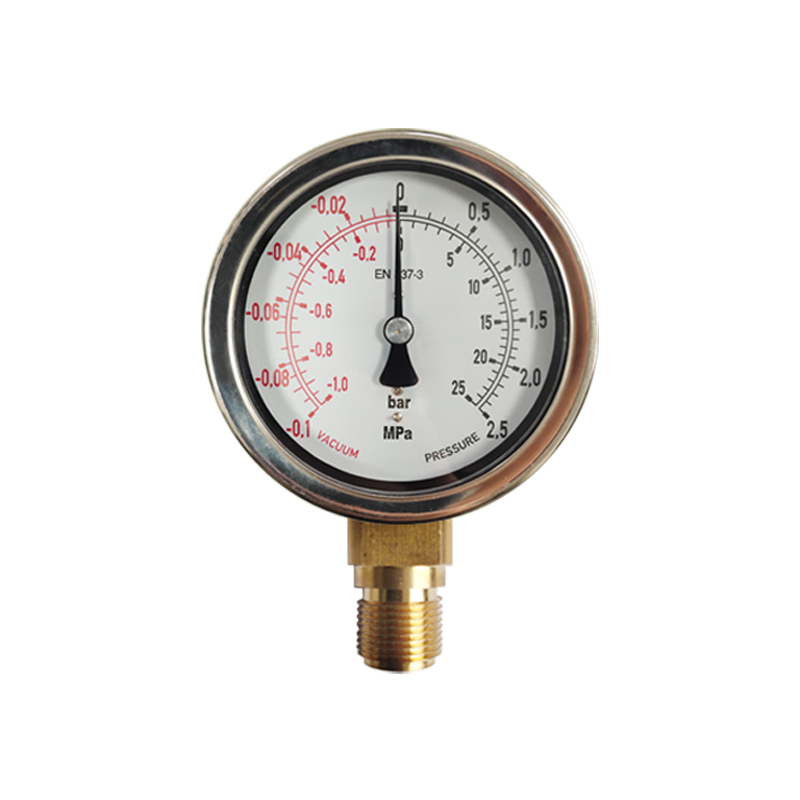
Sep . 29, 2024 02:19 Back to list
Capillary Differential Pressure Gauge for Precision Measurement in Various Applications
Understanding Capillary Type Differential Pressure Gauges
In various industries, the accurate measurement of pressure is crucial for ensuring the safe and efficient operation of machinery and processes. One type of device used for this purpose is the capillary type differential pressure gauge. This article will explore the functionality, advantages, and applications of these gauges, along with their significance in modern industrial practices.
What is a Capillary Type Differential Pressure Gauge?
A capillary type differential pressure gauge is a specialized instrument designed to measure the difference in pressure between two points in a system. It utilizes a capillary tube, which is a narrow, flexible tube that can transmit pressure changes. The gauge typically consists of a pressure sensing element connected to a pair of capillary tubes that lead to the points of measurement. When there is a pressure difference, it causes a fluid within the gauge to move, which is then translated into a readable measurement on the dial or display.
One of the primary features of this type of gauge is its ability to accurately measure low pressures, making it ideal for applications where high sensitivity is required. The use of a capillary system allows for significant reduction in the effects of vibration or turbulence, leading to enhanced accuracy in readings.
How Does it Work?
The operation of a capillary type differential pressure gauge is based on the principle of pressure transfer through the capillary tube. When there is a pressure difference between two points, one end of the capillary tube is exposed to a higher pressure, and the other is exposed to a lower pressure. The resulting pressure differential causes movement of the fluid, which could be a liquid or gas, within the gauge.
This movement is transmitted to a mechanical or electronic display, providing a visual representation of the pressure difference. In mechanical models, the movement is often linked to a needle that moves along a calibrated scale, while digital gauges convert the mechanical movement into electronic signals for precise digital readouts.
Advantages of Capillary Type Differential Pressure Gauges
1. High Sensitivity Capillary type differential pressure gauges are renowned for their exceptional sensitivity to small pressure differences, making them suitable for processes requiring precise measurements.
2. Robust Design These gauges are built to withstand demanding environments. They are often constructed from durable materials that resist corrosion and temperature fluctuations.
capillary type differential pressure gauge jah

4. Versatility They can be used across a variety of industries including chemical processing, pharmaceuticals, food and beverage, and HVAC systems, making them a highly versatile measurement tool.
5. Resistance to Environmental Interference The design minimizes the effects of vibrations and turbulence, allowing for more stable and reliable readings, even in challenging conditions.
Applications of Capillary Type Differential Pressure Gauges
Due to their unique features, capillary type differential pressure gauges find applications in several fields
1. Pharmaceutical Industry Used in cleanroom environments where maintaining precise pressure differentials can be critical for product integrity and safety.
2. HVAC Systems Employed to monitor and maintain optimal air flow and pressure in heating, ventilation, and air conditioning systems.
3. Chemical Processes Essential in processes that involve the transfer of gases and liquids, ensuring accurate measurements during reactions.
4. Food and Beverage Industry Utilized to ensure safety and quality control in the production processes, where monitoring pressure is vital.
5. Oil and Gas Sector Employed in various applications, including pipeline monitoring and control systems, ensuring safety and operational efficiency.
Conclusion
Capillary type differential pressure gauges offer an indispensable solution for pressure measurement across various industries. Their high sensitivity, durability, and minimal maintenance requirements make them a preferred choice for applications that demand precision and reliability. As industries continue to evolve, the role of such sophisticated measurement tools will be paramount in enhancing operational efficiency and ensuring safety in complex systems. Understanding the capabilities and applications of capillary type differential pressure gauges enables industries to leverage their advantages effectively, thus paving the way for innovative solutions in pressure measurement technology.
-
High-Quality Pressure Gauge on Fire Extinguisher - Reliable Water Fire Extinguisher Pressure Gauge Suppliers & Exporters
NewsJul.08,2025
-
High-Quality Water Pressure Differential and Gauge Kit Reliable Manufacturers & Competitive Quotes
NewsJul.08,2025
-
High-Precision Digital Diaphragm Pressure Gauge – Reliable Manufacturer & Competitive Quotes
NewsJul.07,2025
-
Wholesale Diaphragm Pressure Gauge Supplier - Premium Quality & Competitive Price
NewsJul.07,2025
-
Digital Diaphragm Pressure Gauge Reliable & Precise Measurement Top Manufacturers Quotes
NewsJul.06,2025
-
High Accuracy Piston Type Differential Pressure Gauge - Reliable Manufacturers & Competitive Quotes
NewsJul.06,2025
